
14 Feb, 2024
First Time in Thailand – Bangkok Mosques to conduct Open House tours
Bangkok – For the first time in Thailand, dozens of mosques across Bangkok will open their doors for public visitation over the Eid Ul Fitr holiday around 9-10 April, the biggest Islamic event which follows the end of the fasting month of Ramadan. The project is designed to build peace, harmony, friendship and multicultural awareness, for the benefit of the Thai people, expatriate residents and foreign tourists.
Initiated by the well-known Haroon mosque and approved by the Islamic Committee of Bangkok, the mosque tours will help solidify the image of Thailand as peaceful, friendly country open to all faiths and cultures. The project will also generate jobs and income among the Thai-Muslim communities, especially the hundreds of mom-and-pop vendors who sell food and many other products in the areas around the mosques.
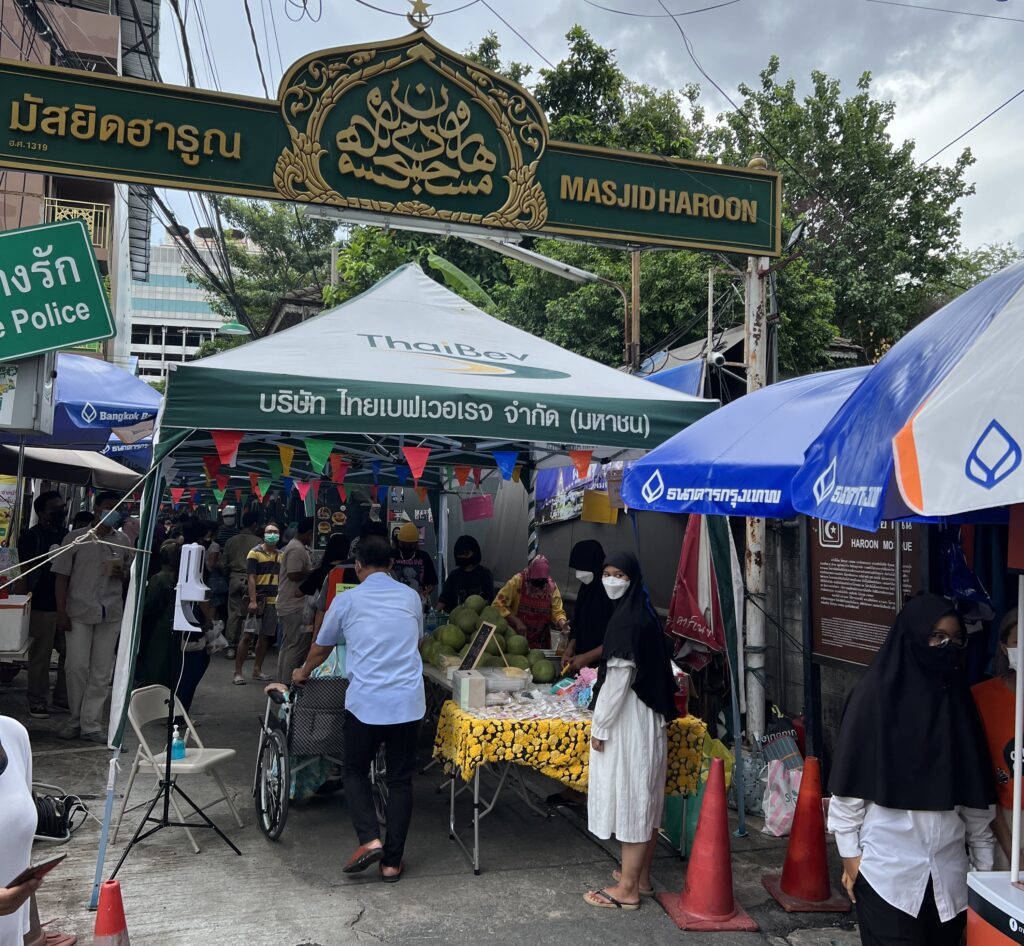
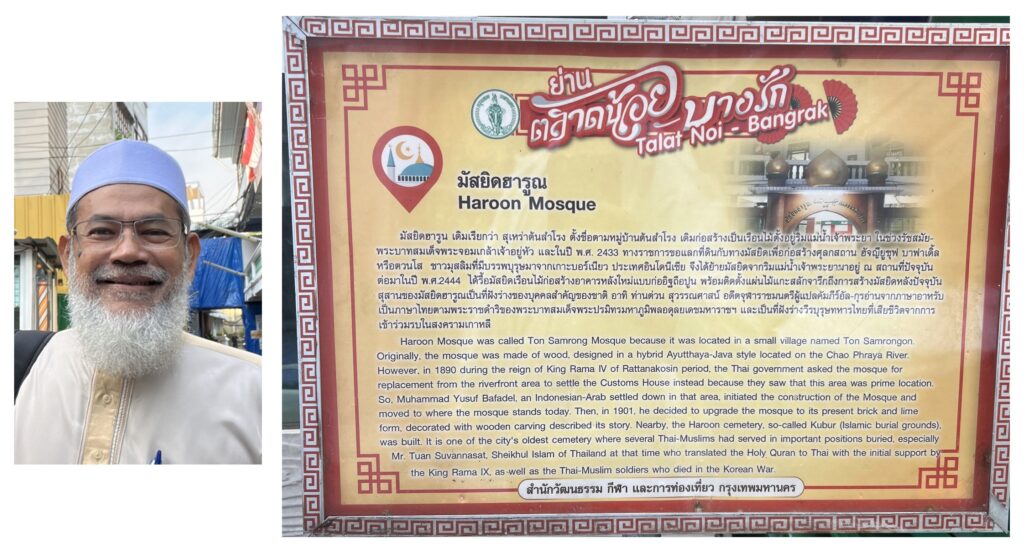
Imam Thanarat Watcharapisut, Imam of the Haroon mosque and Head of International Relations at the Islamic Committee of Bangkok, said: “In view of the Islamophobia prevalent in our society, we would like to inform the people the truth about Islam. There is a lot of misunderstanding and misconceptions about Islam, as well as deliberate misinterpretation. Once we can counter that, it will create a better understanding amongst peoples. We also want this to be a reciprocal arrangement. We will encourage Muslims to visit churches and temples and learn from each other.”
Based on the Open House mosque tours conducted in Malaysia, the project fulfils multiple national, regional and global diplomatic objectives.
At the local level, it is line with the Thai Constitution which permits freedom of religion and, in spite of being a Buddhist majority country, treats all Thais as equal citizens with equal rights to vote, work and worship. Members of the Thai Royal Family support Islamic events and regularly visit South Thailand where Muslims comprise a majority. It is also also in line with the principles of the ASEAN Socio-Cultural Blueprint, the third and most neglected pillar of ASEAN integration, the UN Alliance of Civilisations and the peace-building objective of the 17 UN Sustainable Development Goals.
Most importantly, it promotes Thai travel & tourism by giving a new dimension to “sustainability.” Although that term is by large used in the context of environmental conservation, tourism is increasingly being impacted by racial, social, cultural and geopolitical tensions in many parts of the world (what this writer has termed “The Other Global Warming”). Thailand has so far remained free of these conflicts, and there is a growing realisation that preserving this socio-cultural-ethnic peace is just as important as preserving the environment.
The Thai Foreign Ministry showcases this relative calm in its diplomatic activities. Visiting dignitaries from the Islamic world are taken to visit the Kudeejin district on the Thon Buri side of the Chao Phraya river where a heritage Buddhist temple, a historic Portuguese church and a unique Islamic mosque are located within walking distance of each other, in the midst of local communities which have peacefully co-existed for decades.
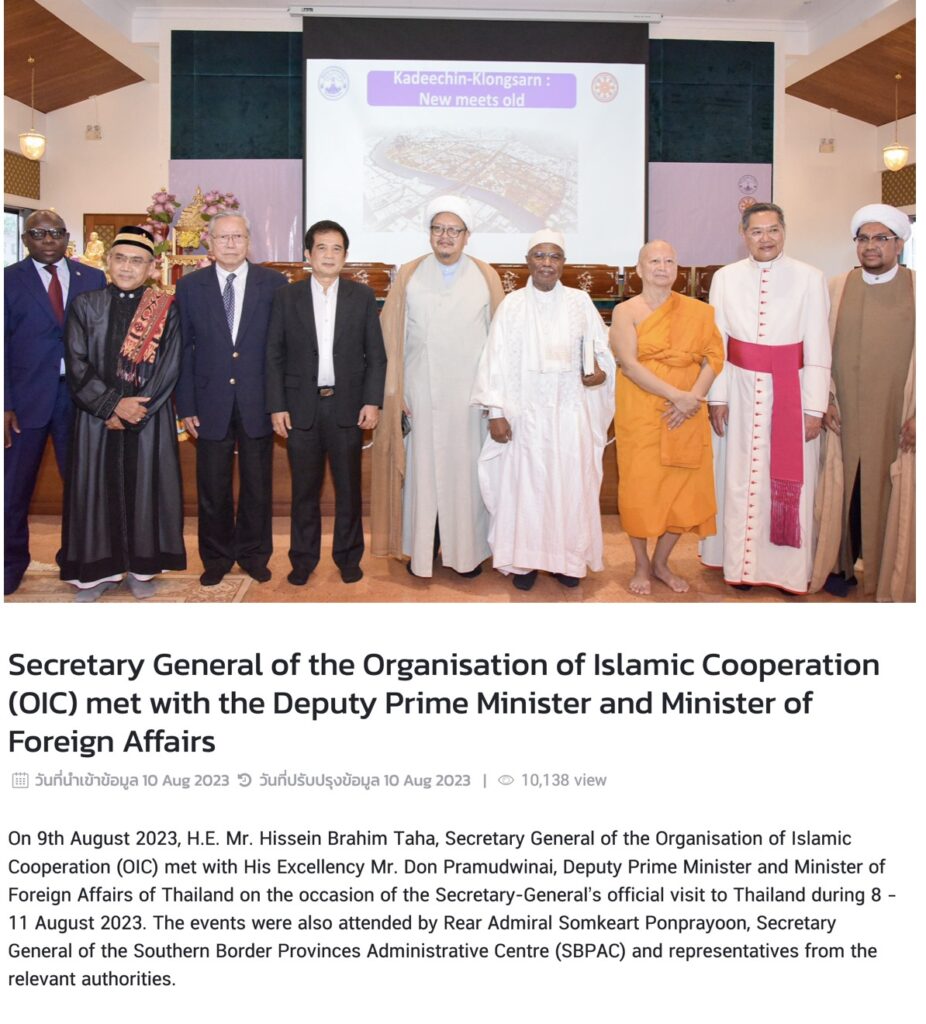
Thailand has observer status in the Organisation of Islamic Countries (OIC) and is working to capitalise on its potential as a manufacturer and exporter of Halal products across the 1.4 billion Islamic population. This economic advantage is being intensively supported by rapidly growing entities such as the Thai Muslim Trade Association, which groups numerous young Thai-Muslim entrepreneurs keen to take Thai Halal products global.
Other institutions such as the Halal Science Centre, under Chulalongkorn University, and the Halal Standard Institute of Thailand, also organise an annual Thailand Halal Assembly to promote science and research in the certification process, and promote Thai-Muslim businesses.
Thailand is attracting millions of visitors from the Islamic world. Saudis are now the fastest-growing and highest-spending visitors following the diplomatic rapprochement with Thailand in January 2022 after a 32-year break. Local hospitals have for years catered to medical tourists from the Gulf. Well-heeled visitors from Bangladesh, Pakistan, Indonesia and Brunei are frequent visitors.
The Tourism Authority of Thailand has a long-standing strategy to position Thailand as a Muslim-friendly destination. There are plenty of halal restaurants. Many department stores and shopping malls now have prayer-rooms.
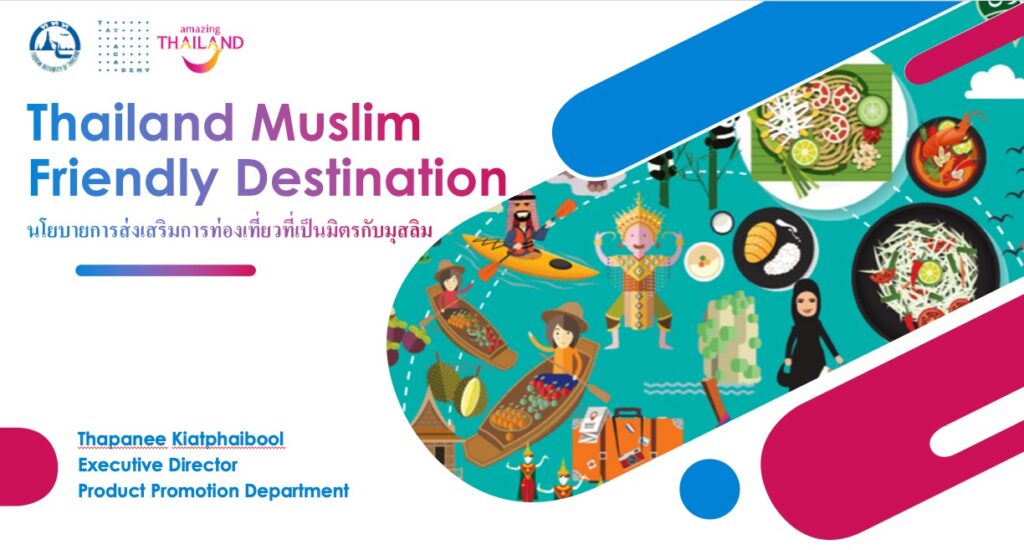
Although Thailand capitalises on the economic and tourism advantages of its Muslim minority, the general population has little understanding of the religion, thanks to the stereotype media coverage originating from abroad and the portrayal of Muslims as a backward people prone to violence and conflict. Home-grown extremists, politicians, business-people and media with anti-Muslim agendas also stir the pot.
Imam Thanarat says dispelling those myths and countering the fabrications is a very important objective of the Open House mosque tours. If people take the tours with open minds and a desire to learn in a spirit of peace and harmony, it will build good interfaith and intercultural relations. The main challenge, he says, is to deal with those inclined to pre-judge and reinforce their pre-determined, negative mindsets.
He has compiled a list of 20 questions which get routinely asked in mosques, such as “Why do many Muslim women wear the hijab?”, “Why does Islam prohibit gambling and the consumption of alcohol” “Why do many Muslim men wear a cap?”. Others not on that list, but traditionally asked, include those related to status of women, marriage, divorce and violence.
In addition to the misinformation campaigns, Imam Thanarat says these stereotypes can be traced back to education and lack of intercultural interaction. Spiritual leaders have an important role in addressing this.
In January, Imam Thanarat invited a Malaysian of Chinese origin named Sarah Tan to give a training course for the mosque tours. A former banker, she had converted to Islam by herself and not by marriage, and was now conducting mosque tours herself. Her presentation include numerous quotes from visitors who left with a much better awareness and knowledge which they had never had access to.
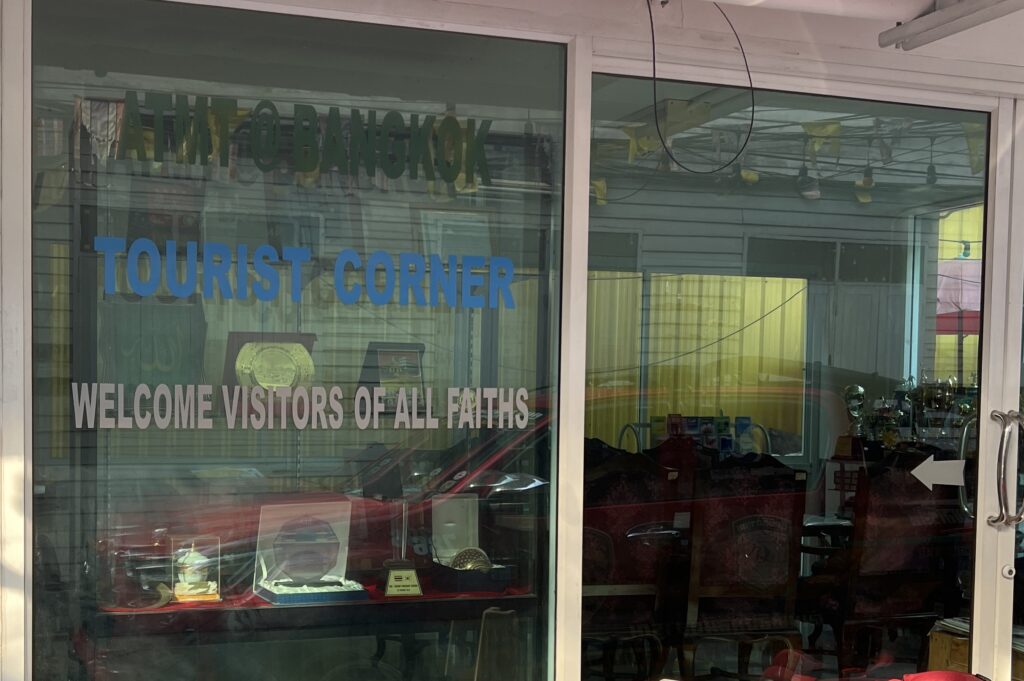
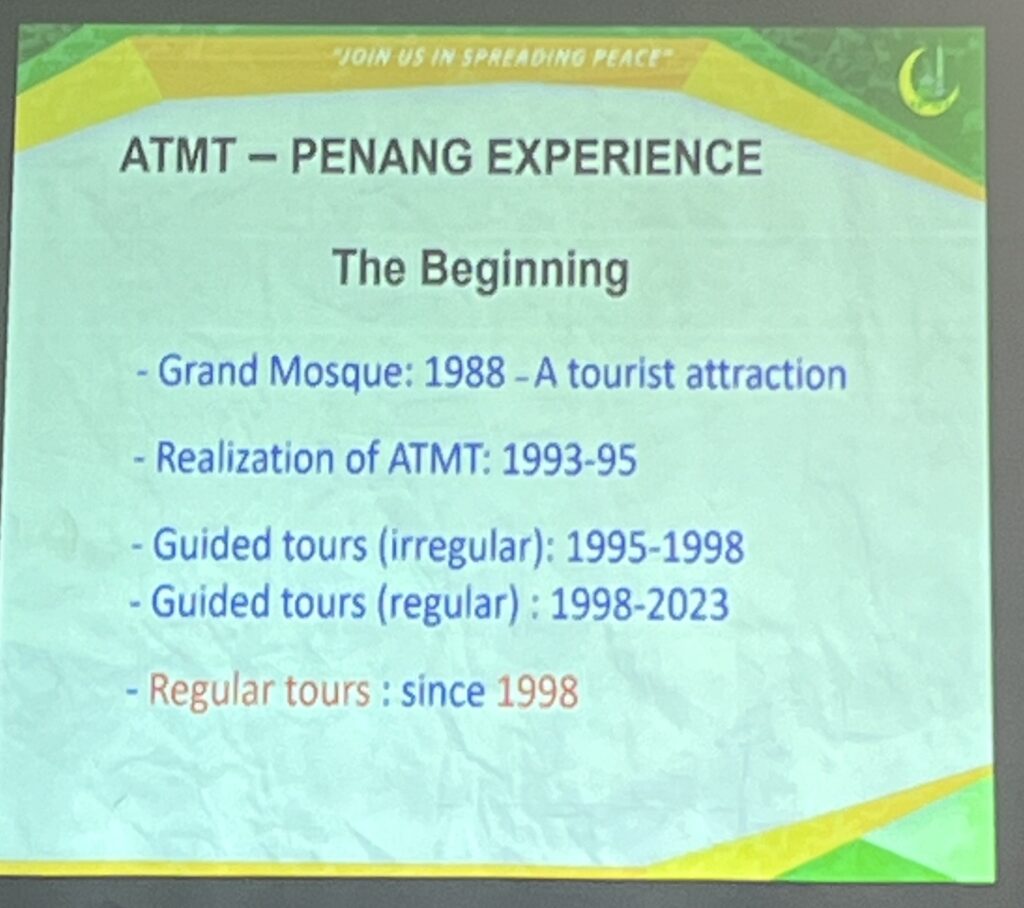
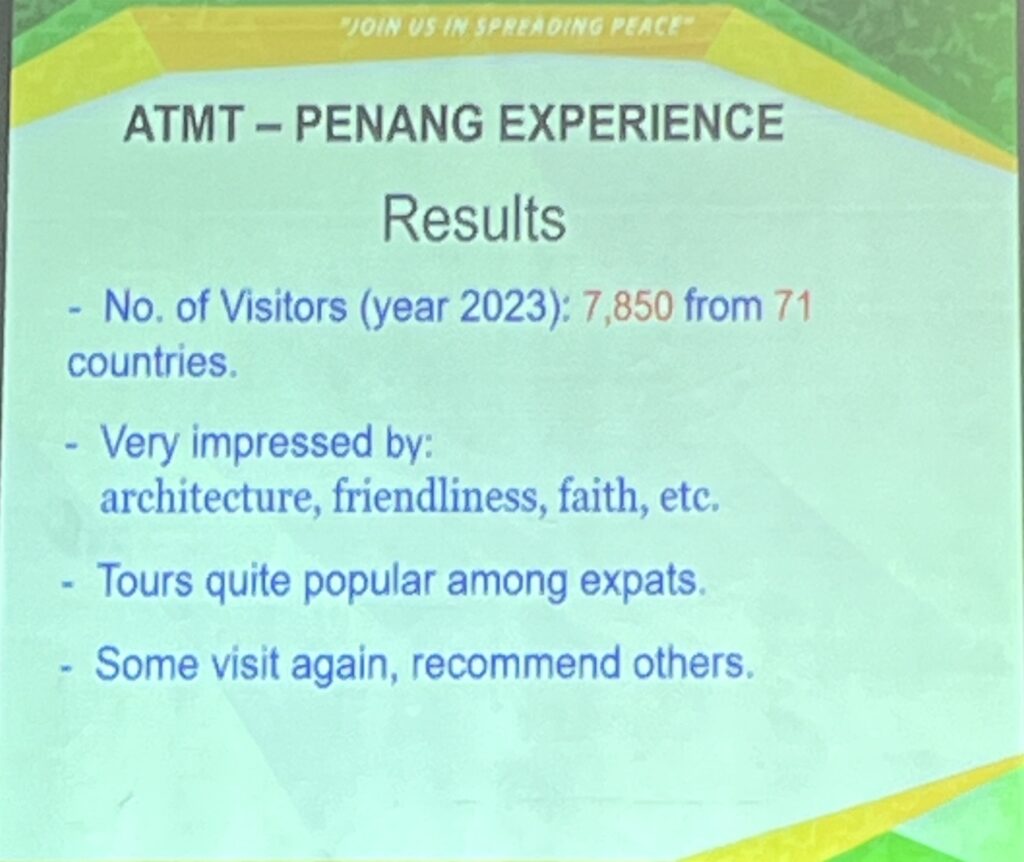
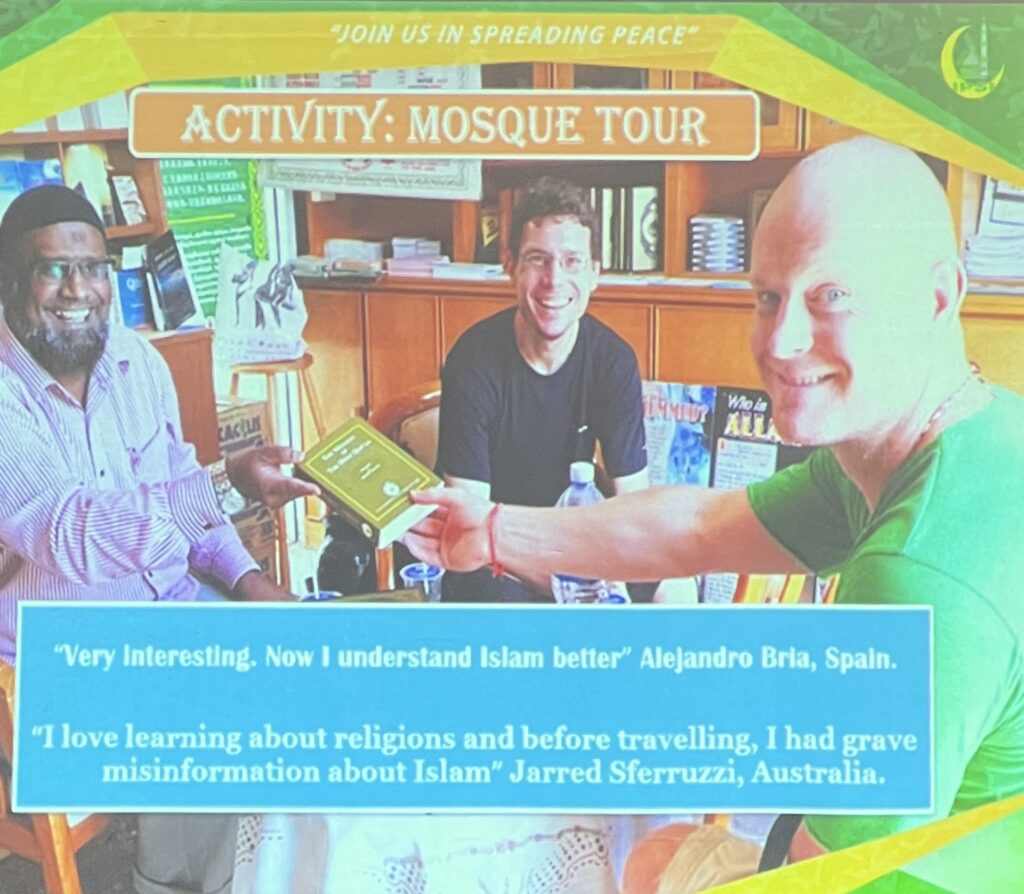
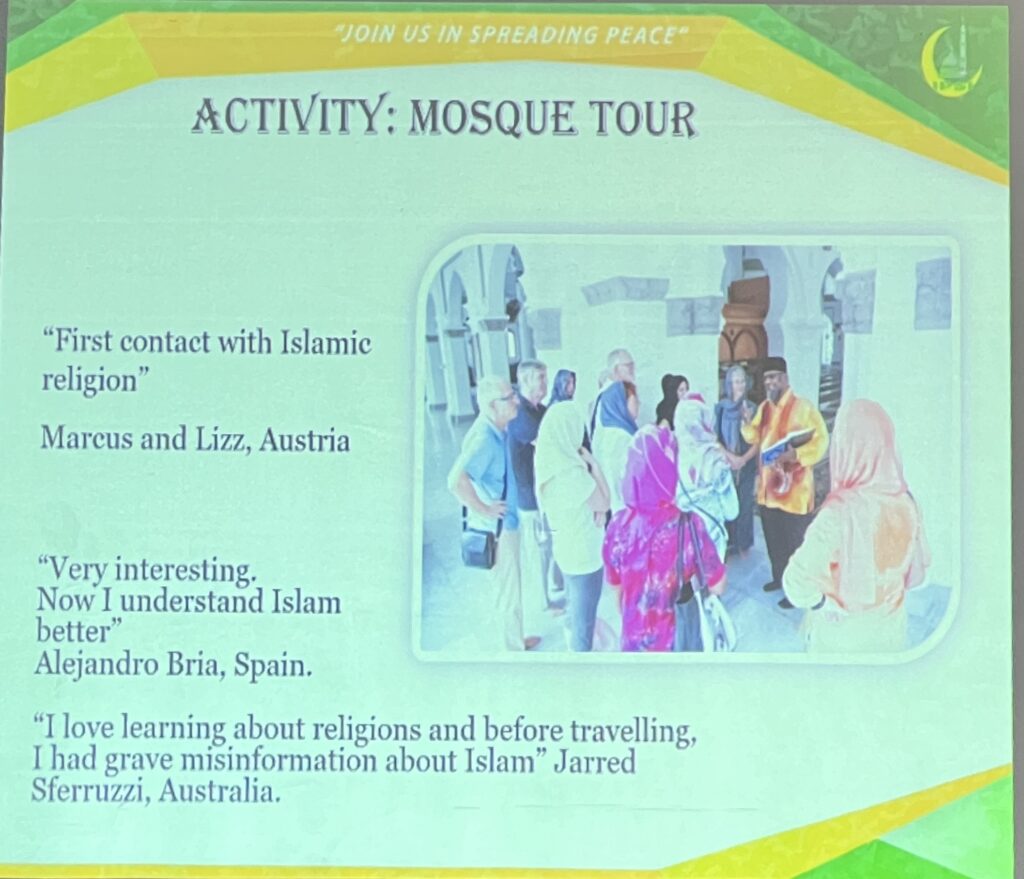
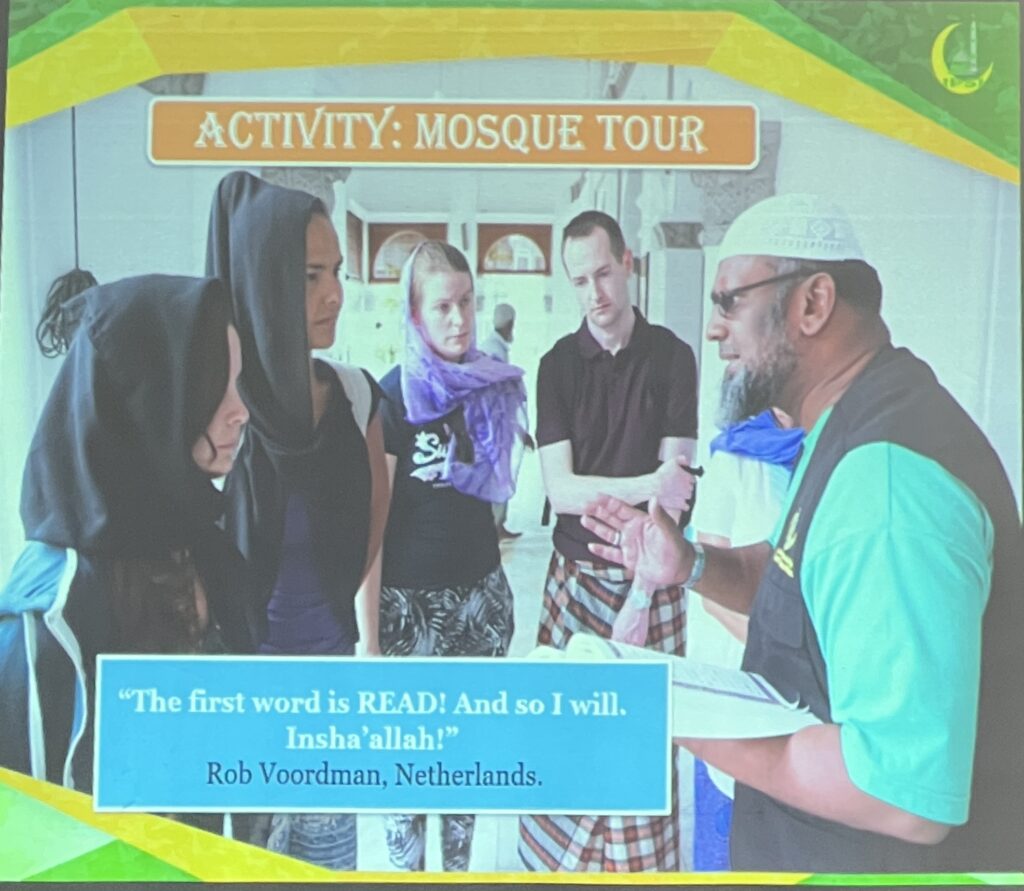
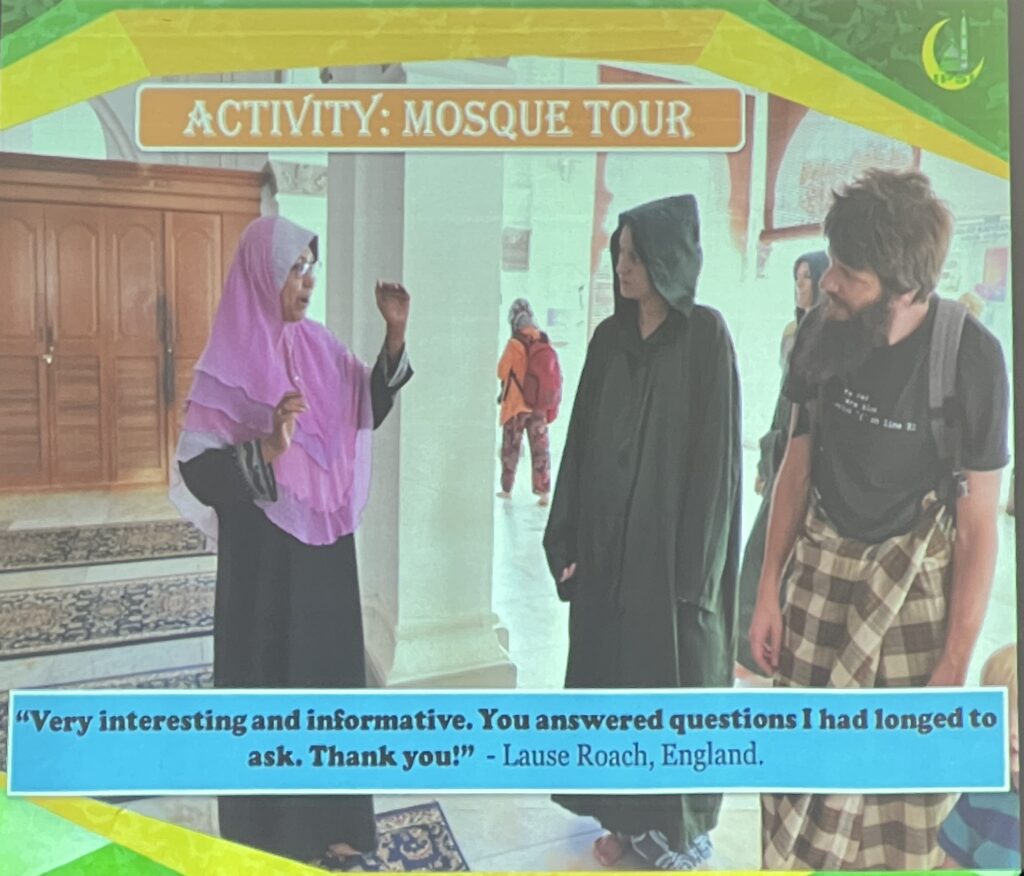
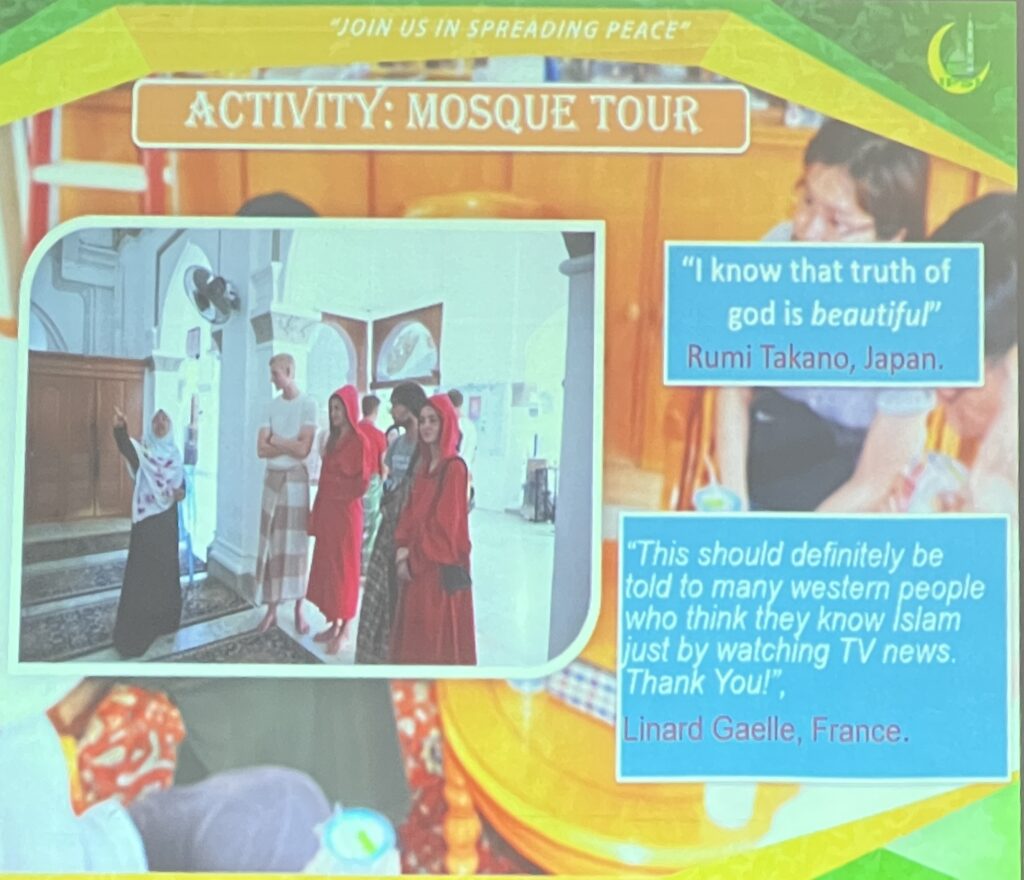
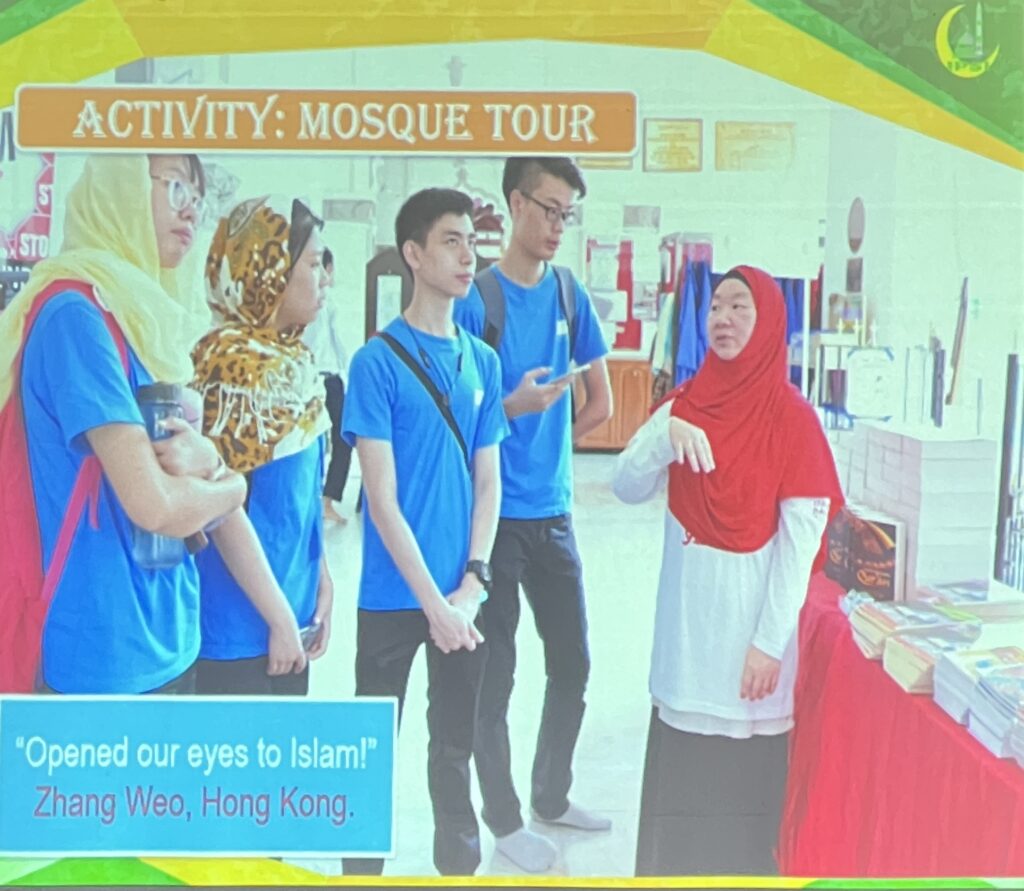
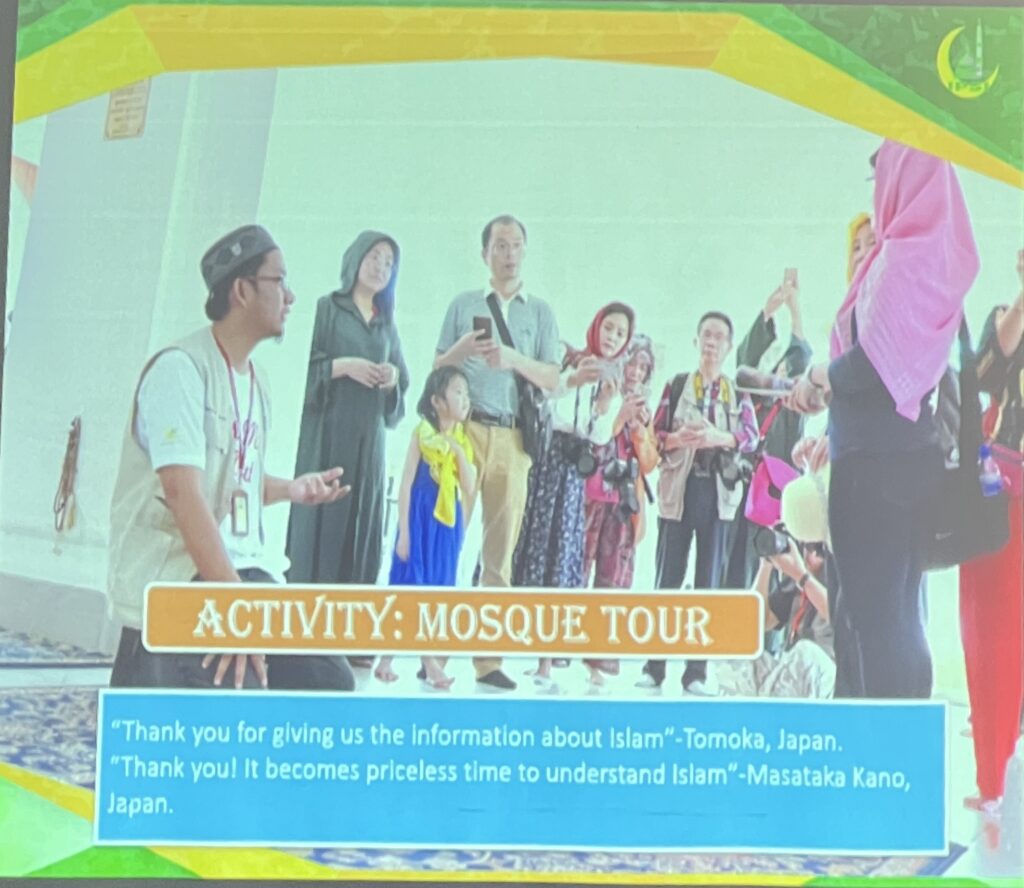
He is hopeful that the tours will produce good results, and strengthen Thailand as a peaceful society that can use its multi-cultural advantages to good advantage.
There are 187 mosques in Bangkok, many of them with a rich historic heritage. The tours will be given in both Thai and English. In some areas, Thai Muslims also have Arabic-speaking constituents.
Located right next to the well-known Oriental hotel, Haroon mosque is a popular spot for visitors and on the itinerary of the city’s increasingly popular bicycle tours. It has been conducting tours for six years. So do number of other Bangkok mosques, but the Imam said they need to be standardised. The tours are also conducted in two Chiang Mai mosques.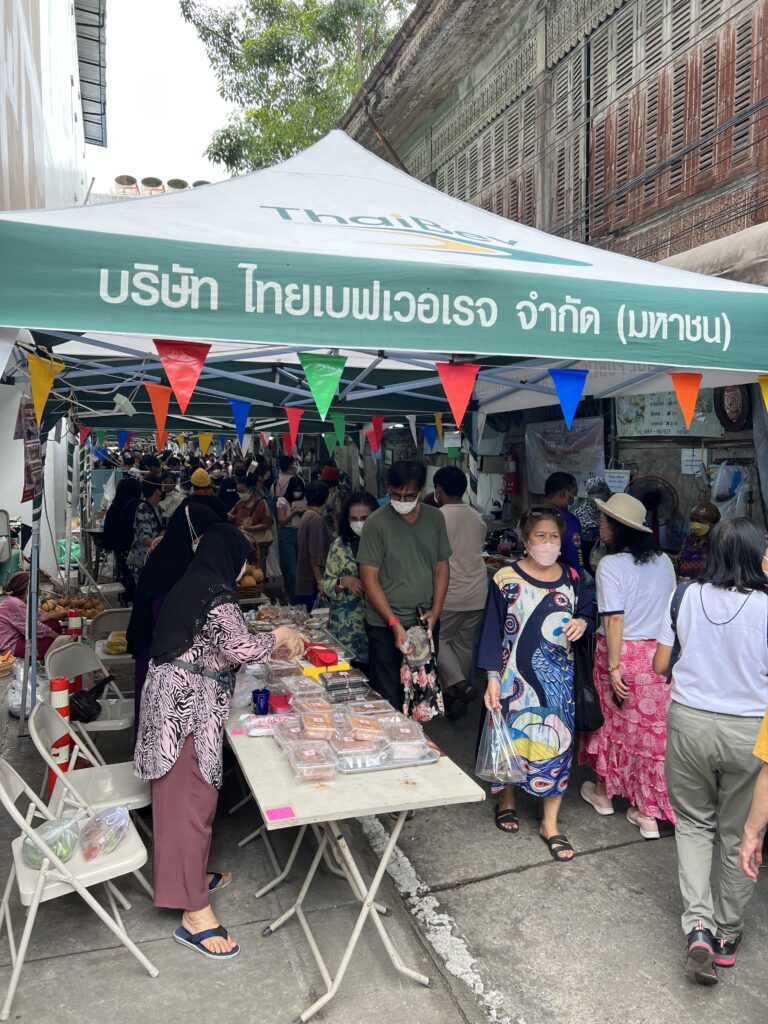
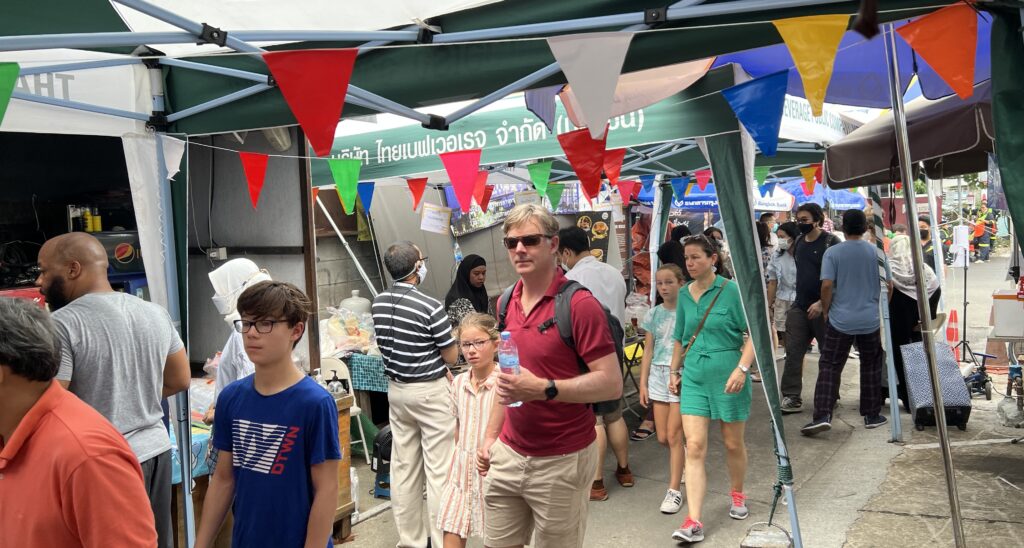
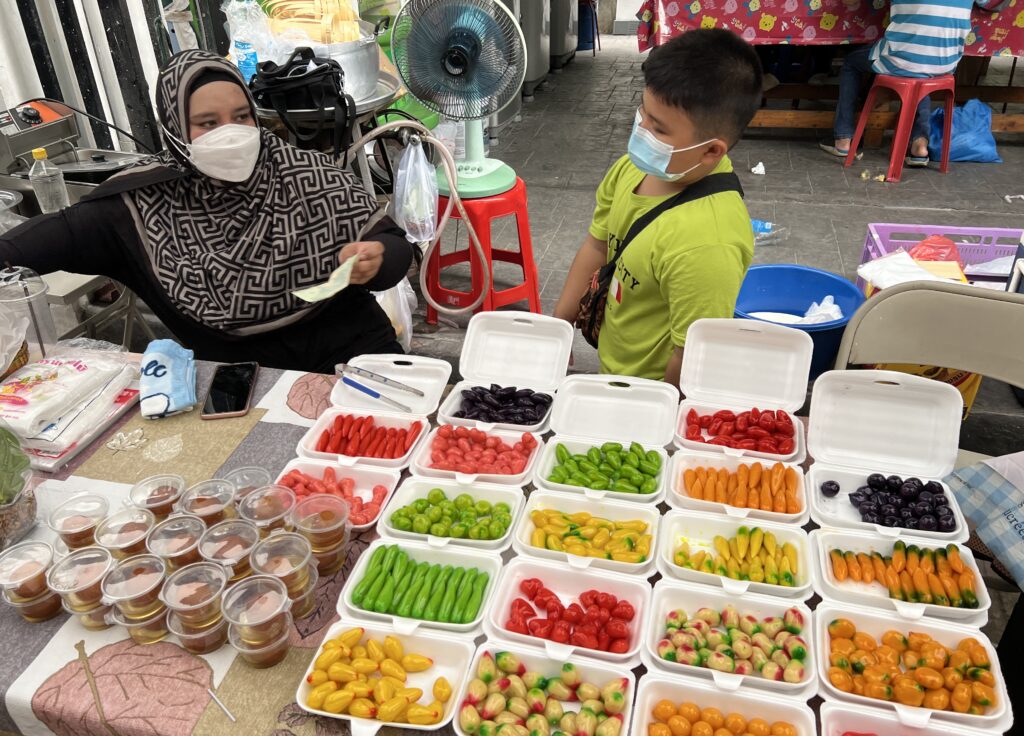
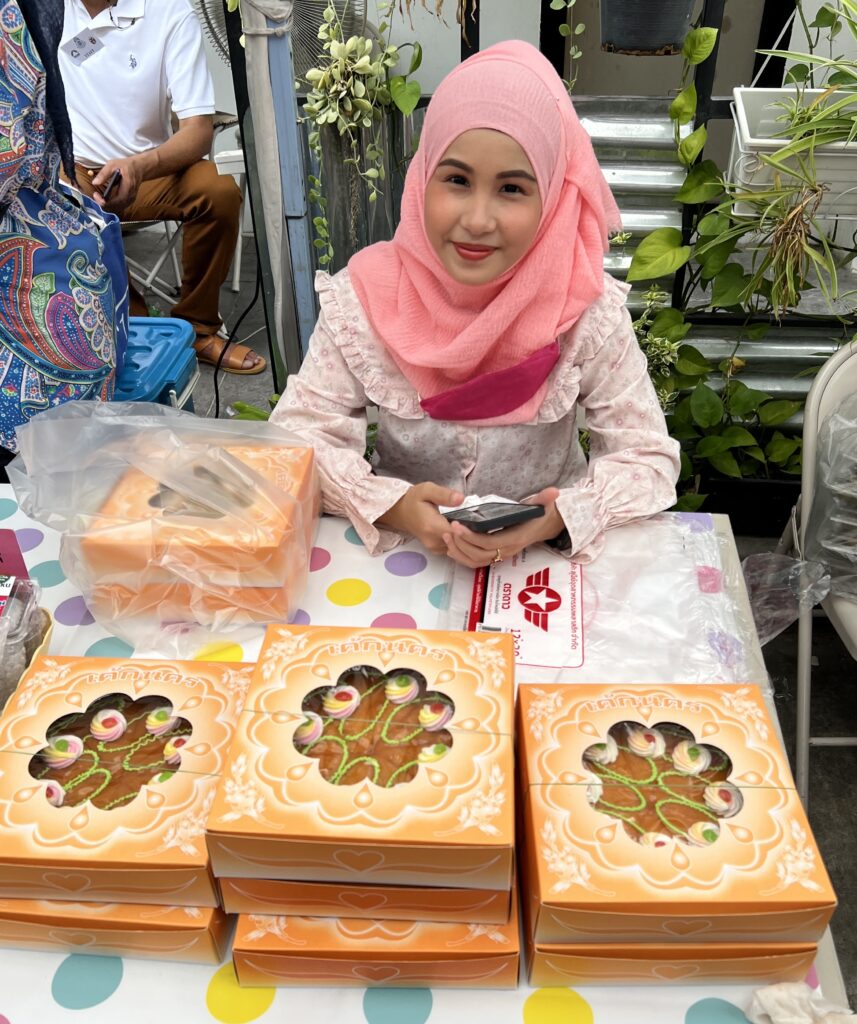
Ramadan will begin around March 10-11 and end on or around 10-11 April. Imam Thanarat said the mosques can also hold them during Ramadan after the break of fast at sunset, known as the Iftar. The timings and other details of the tours will be decided by the committees of the individual mosques. In the first stage, the tours will be conducted only in Bangkok. After an evaluation, a proposal will be sent to the Islamic Committee of Bangkok to conduct them nationwide.
On Feb 24-26, representatives of all the participating mosques will participate in a training course on how to conduct these tours, featuring speakers from the Discover Islam Bahrain and Islamic Propagation Society International (IPSI), a non-government, non-political organization based in Penang, Malaysia.



Liked this article? Share it!